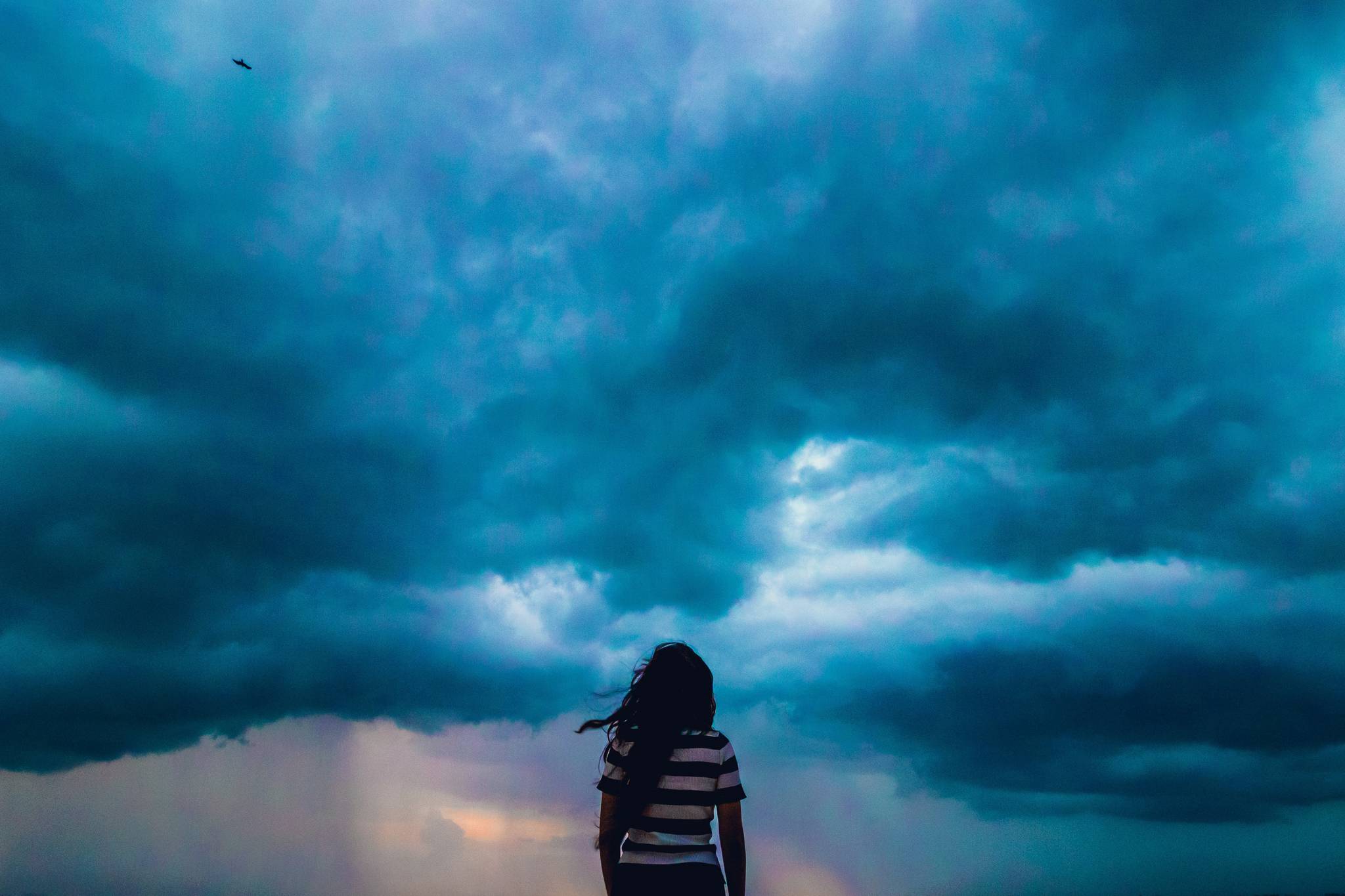“The night before the night she came, Katrina the hurricane, all was calm.” That opening line of a song written and performed by Jesca Hoop eerily captures our situation today. We may be on high alert. But we wait without knowing how bad the impact of this biological storm will be.
And her last line has a message, too. The realization that “Love is all we have, ever really had” speaks to a human bond more powerful than the illusion of economic, technological and cultural superiority.
“Love is All We Have” was released in 2007, two years after the “waters rose and the levees, the levees broke,” around New Orleans. Nobody knows the exact death toll from the flooding that inundated three quarters of the city. Most estimates put the figure around 1,800.
Hoop wasn’t there when the Katrina ravaged New Orleans. But with her beautifully haunting voice she captures the pain of personal loss as a “beloved was washed away.” And the collective human sorrow during the aftermath in “the naked feet” on “pavement of nameless streets, oh, faceless homes.”
The full tragedy, however, has been misappropriated by America’s political tribes.
President George W. Bush had been vacationing at his ranch in Texas when Katrina made landfall. By the time he flew over the devastation two days later, criticism of the federal government’s response had already begun. And Bush unintentionally amplified it by telling FEMA Director Michael Brown “Brownie, you’re doing a heck of a job.”
After that, Katrina became a code partisan for failed presidential leadership. The Deepwater Horizon oil rig blowout, Hurricane Sandy and the Ebola outbreak were among more than a dozen events referred to as President Barack Obama’s Katrina. For President Donald Trump it was Hurricane Florence. Then the family separation policy at our border with Mexico. And now the coronavirus pandemic.
Trump certainly made it worse by downplaying and even dismissing the nature of this threat. Telling Americans now that he always took it seriously is not only dishonest. It will enable a divisive wedge to remain during the time when communities across the nation need us to cooperate and care for each other like never before.
I’m pleased that Gov. Mike Dunleavy declared a state of emergency before the first case was reported in Alaska. I appreciate him calling us to approach the crisis “with determination, ingenuity and compassion for our neighbors.” And his historical recitation of Alaskans overcoming extreme adversity points to genuine sources of inspiration.
But humility has a role here too.
The rapid acceleration in which business as usual has ceased tells another story. The alarm bells weren’t ringing for most Americans, myself included, until the virus began to race through Italy.
The response to this pandemic by South Korea, Hong Kong and Singapore has exposed a different shadow to our mythology. We’re not superior.
And the tribal rancor which has infected our body politic contributed to what well might be remembered as America’s collective Katrina.
As individuals, I see in Hoop’s song a reminder that we’re all the same. Because no matter what we believe, how much we’ve accomplished, or the amount of personal wealth we’ve amassed, the sorrow of losing a partner, family member or close friends is felt across all of humanity.
That primal emotion is the source of the greater love Martin Luther King Jr. called us to half a century ago — a “worldwide fellowship that lifts neighborly concern beyond one’s tribe, race, class and nation” to “an unconditional love for all mankind.” He wasn’t speaking of a “sentimental and weak response,” he said, but “of that force which all of the great religions have seen as the supreme unifying principle of life. Love is somehow the key that unlocks the door which leads to ultimate reality.”
As this storm approaches, taking the Hoop’s humble sentiment and King’s powerful voice into our hearts will help us find genuine compassion for everyone in our communities. And after we arrive on the other side, they could steer the rebuilding of the Alaskan and American ways of life to more truly honor the self-evident truth that all men and women are created equal.
• Rich Moniak is a Juneau resident and retired civil engineer with more than 25 years of experience working in the public sector. Columns, My Turns and Letters to the Editor represent the view of the author, not the view of the Juneau Empire.

